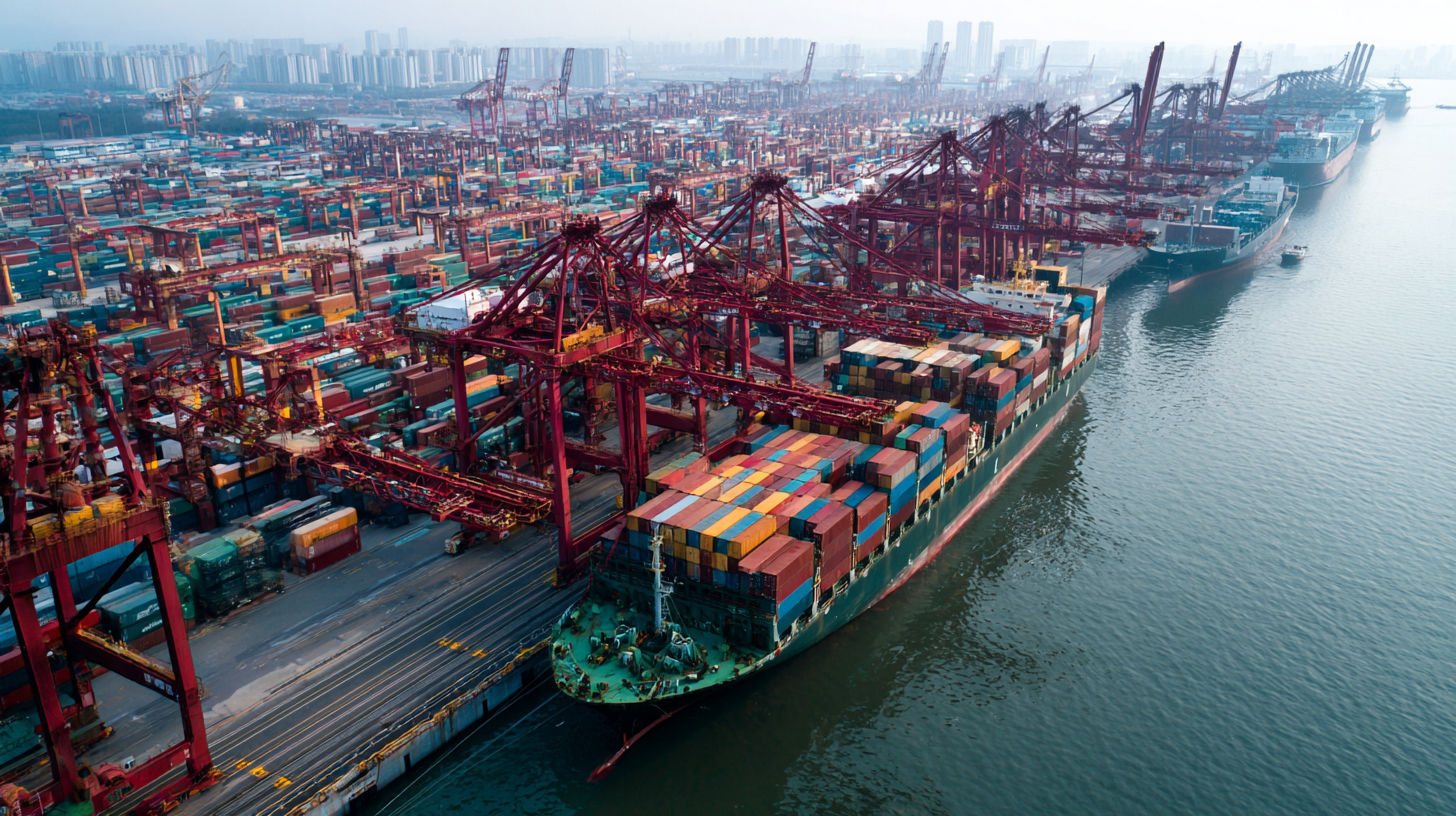
In today's fast-paced and ever-evolving technological landscape, businesses are increasingly challenged to keep pace with emerging trends that can significantly impact their operations and growth. As we look ahead to 2025, understanding these technology trends is crucial not only for organizations themselves but also for those seeking to identify and collaborate with the best suppliers in their respective industries. This blog will explore various innovative technologies shaping the market, from artificial intelligence and automation to blockchain and sustainable solutions, offering valuable tips on how to navigate this complex environment. By aligning with the right suppliers who are adept in these areas, businesses can enhance their competitive edge, ensure resilience, and foster sustainable growth in an increasingly digital world. Join us as we delve into the key technology trends and how to effectively source the ideal suppliers to meet your needs.

As we approach 2025, it's essential to identify the key technology trends that are shaping industries and influencing supplier selection. One significant trend is the rise of artificial intelligence (AI) and machine learning, which, according to the International Data Corporation (IDC), is projected to drive global spending on AI systems to more than $110 billion in 2024. These technologies are transforming supply chains by enhancing predictive analytics, improving operational efficiency, and enabling personalized customer experiences. Businesses that integrate AI-driven solutions can significantly reduce costs and enhance service quality, making them more competitive in the market.
Another crucial trend to watch is the increasing importance of sustainability and green technologies. The Global Sustainability Study found that 75% of consumers are more likely to purchase from brands that prioritize sustainability. This has led companies to seek suppliers who not only offer innovative products but also adhere to environmentally friendly practices. Implementing green supply chain management can help businesses not only comply with new regulations but also strengthen their brand loyalty among environmentally-conscious consumers.
Tips: To navigate these trends effectively, ensure that your supplier evaluation criteria include their technological capabilities and commitment to sustainability. Engaging in regular market analysis can keep you informed about emerging technologies and help you identify potential partners who align with your strategic goals. Additionally, consider attending industry conferences and webinars to network with thought leaders and gain insights into best practices in supplier evaluation.
In today's fast-evolving tech landscape, identifying the most impactful suppliers has become crucial for businesses aiming to stay competitive. According to Gartner, 75% of organizations express that supplier performance significantly influences their technology adoption success. This insight underscores the importance of leveraging technology analysis to pinpoint suppliers who not only deliver quality products but also foster innovation.
Technological advancements allow companies to assess supplier capabilities through data-driven insights. A report by McKinsey highlights that organizations utilizing advanced analytics to evaluate supplier performance have seen up to a 20% increase in operational efficiency. By harnessing tools like AI and machine learning, businesses can gain a better understanding of supplier reliability, delivery timelines, and cost-effectiveness. This comprehensive view enables companies to form strategic partnerships with suppliers that are not just transactional, but truly additive to their own growth and innovation trajectory.

In the rapidly evolving landscape of technology, identifying the right suppliers is more critical than ever. Leveraging data-driven insights can significantly enhance your supplier evaluation process, ensuring that you partner with organizations that align with your business goals and standards. By harnessing analytics, businesses can assess potential suppliers from multiple angles, including reliability, previous performance, and financial stability. Advanced data tools can aggregate information, enabling decision-makers to draw comprehensive comparisons and make informed choices.
Utilizing metrics derived from market trends and consumer behavior can illuminate aspects of potential suppliers that might otherwise go unnoticed. For instance, examining a supplier's lead times and delivery accuracy through historical data can reveal their operational strengths and weaknesses. Moreover, engaging in predictive analytics allows companies to anticipate future trends and how suppliers may adapt, ensuring they remain competitive in a fast-paced technological environment. This strategic approach not only mitigates risks but also fosters long-term partnerships that contribute to sustained growth and innovation in your industry.
| Supplier Category | Technology Adoption Level | Data Transparency Score | Sustainability Index | Customer Satisfaction Rate (%) |
|---|---|---|---|---|
| Cloud Computing Services | High | 85 | 74 | 92 |
| Cybersecurity Solutions | Medium | 90 | 68 | 89 |
| Artificial Intelligence | High | 88 | 80 | 95 |
| Supply Chain Management | Medium | 80 | 72 | 87 |
| Data Analytics | High | 82 | 75 | 90 |
As businesses prepare for the technological landscape of 2025, assessing supplier adaptability to upcoming changes becomes paramount. The rapid evolution of technologies such as generative AI, data analytics, and automation not only reshapes operational efficiencies but also requires suppliers to remain agile and responsive. Companies must focus on forming strategic partnerships that facilitate information sharing and enhance supply chain flexibility. Such collaborations enable businesses to better navigate disruptions and integrate innovative technologies seamlessly.
Moreover, the growing importance of sustainability in supply chain management emphasizes the need for suppliers to adopt eco-innovation practices. With climate change impacting global commerce, organizations are urged to evaluate climate adaptation strategies and invest in resilience planning. By leveraging advanced analytics and machine learning techniques, firms can enhance their capability to assess supplier performance in real-time, ensuring that their supply chains can withstand environmental stresses while maintaining operational integrity. This evolving approach will not only fortify supply networks but also drive sustainable growth in an increasingly complex marketplace.
Building strong partnerships with innovative suppliers in today's rapidly evolving technological landscape is essential for staying competitive. To begin with, it’s crucial to foster open communication. This means not only sharing your expectations and requirements but also actively listening to the ideas and solutions that suppliers propose. Engaging in regular dialogue allows for a better understanding of each other's strengths and capabilities, ultimately leading to more effective collaboration.
Furthermore, investing in relationship-building activities can significantly enhance mutual trust and commitment. This could include joint workshops, site visits, or collaborative projects that align with both parties' goals. By involving suppliers in your innovation process, you can tap into their expertise and insights, creating a symbiotic relationship that drives growth and minimizes risks. Remember, selecting the right suppliers is not just about the cost; it’s about finding partners who share your vision for the future and are eager to innovate alongside you.

